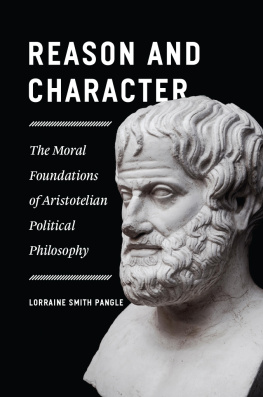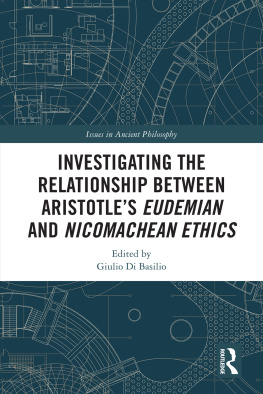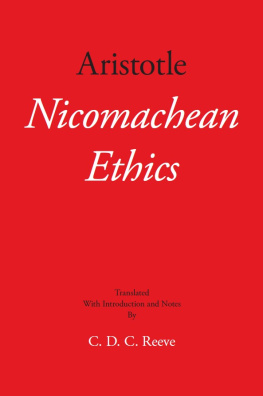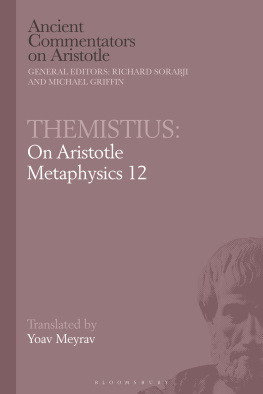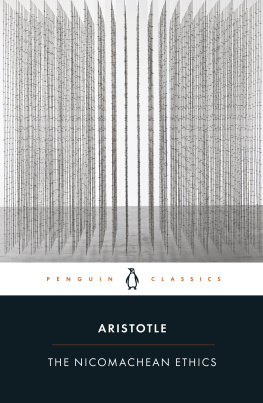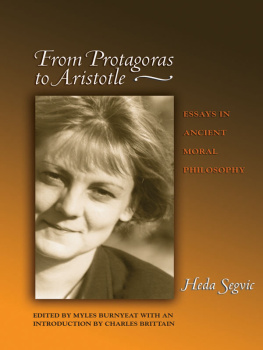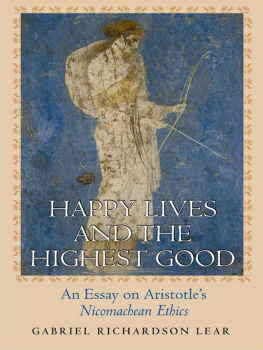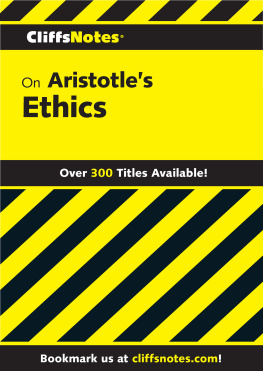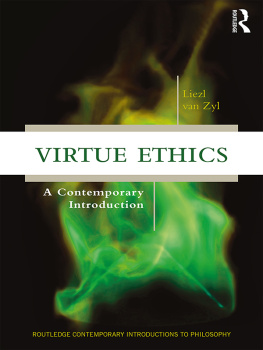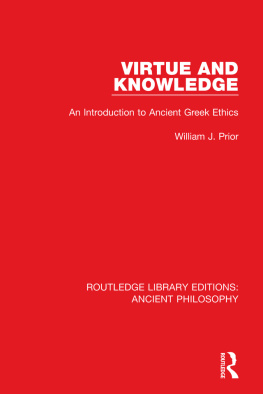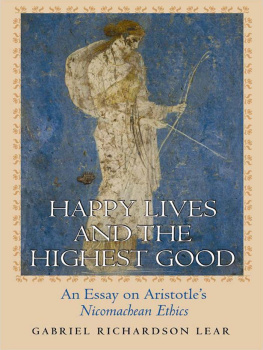
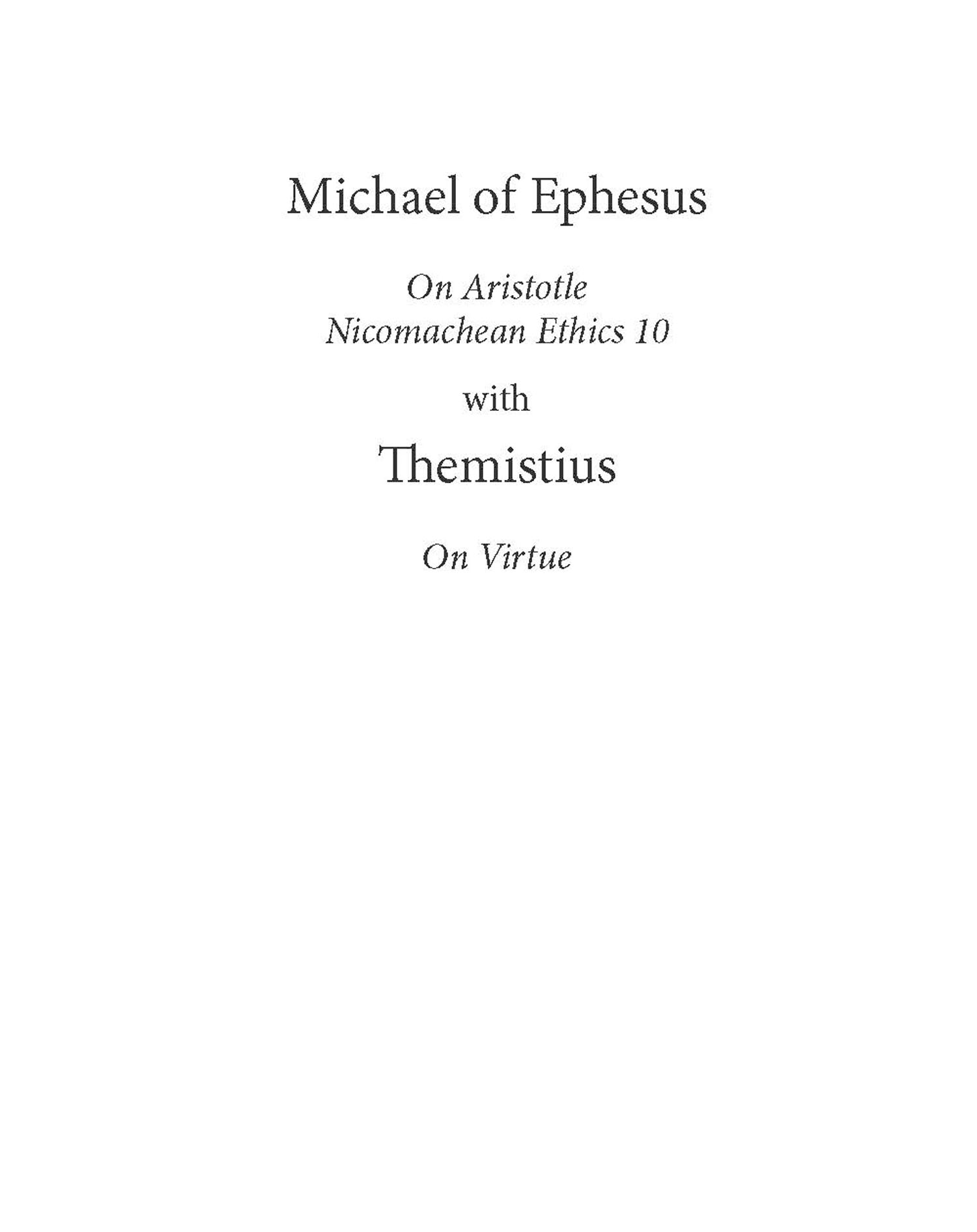
Ancient Commentators on Aristotle
GENERAL EDITORS: Richard Sorabji, Honorary Fellow, Wolfson College, University of Oxford, and Emeritus Professor, Kings College London, UK; and Michael Griffin, Assistant Professor, Departments of Philosophy and Classics, University of British Columbia, Canada.
This prestigious series translates the extant ancient Greek philosophical commentaries on Aristotle. Written mostly between 200 and 600 AD, the works represent the classroom teaching of the Aristotelian and Neoplatonic schools in a crucial period during which pagan and Christian thought were reacting to each other. The translation in each volume is accompanied by an introduction, comprehensive commentary notes, bibliography, glossary of translated terms and a subject index. Making these key philosophical works accessible to the modern scholar, this series fills an important gap in the history of European thought.
A webpage for the Ancient Commentators Project is maintained at ancientcommentators.org.uk and readers are encouraged to consult the site for details about the series as well as for addenda and corrigenda to published volumes.

Contents
[] Square brackets enclose words or phrases that have been added to the translation for purposes of clarity.
() Round brackets, besides being used for ordinary parentheses, contain transliterated Greek words.
On Aristotle
Nicomachean Ethics 10
Translated by James Wilberding and Julia Trompeter
James Wilberding and Julia Trompeter
The life and works of Michael of Ephesus
Almost nothing is known about the life of Michael of Ephesus, and what we do know is in large part inferred from his writings. His name indicates that he was a Christian, and this is confirmed by a number of passages in his commentaries (e.g. in EN 462,19ff.; 549,21ff.; 620,17ff.). His routine references to medicine also give us good reason to believe that Michael was a physician.
Despite the fact that we know so little about his life, Michael of Ephesus has the distinction of being one of the most wide-ranging commentators on Aristotle ever to have lived. His surviving commentaries on Aristotle there is no evidence that he composed commentaries on other authors follow the standard Olympiodorian structure that first approaches a passage via a preface (dianoia) addressing its general import and then turns to discuss the details of the text (lexis), and the scope of his commentary work extends over the traditional divisions of philosophy to include logic, natural philosophy, metaphysics and ethics. Commentaries by Michael have been transmitted to us in some form on Aristotles Parva Naturalia, On the Parts of Animals, On the Movement of Animals, On the Progression of Animals, Nicomachean Ethics 5, Nicomachean Ethics 910, Sophistical Refutations, On the Generation of Animals, Metaphysics 714
Moreover, Michael appears to refer to a number of other commentaries, and some scholars have maintained that these commentaries were written but have not survived: Physics,
Neoplatonic influence on the thought of Michael of Ephesus
One of the recurring issues in the scholarship concerns Michaels respective commitments to Platonism and Aristotelianism, on which scholars have historically advanced conflicting views. Almost the entire post-Plotinian commentary tradition is characterized by a commitment to the harmonization of Plato and Aristotle, although the level of commitment does vary from commentator to commentator. but they maintain that the degree of this influence is limited enough that it does not amount to a significant departure from Aristotles theory.
Recently, a third wave of scholarship has been developing, which has the Neoplatonic influence on Michaels thought running much deeper. This wave begins by taking more seriously the instances of Neoplatonic influence already known to the second wave and then adds to these some previously unidentified instances, while also accounting for the absence of Neoplatonism where it does not appear. Outside of Michaels commentaries on the Nicomachean Ethics, this includes his heavy dependence on Syrianus in his commentary on Aristotles Metaphysics 714. that while there are no high flown Neo-Platonist speculations in his commentary on Aristotles Sophistical Refutations, this is simply because the older scholia that he was working with did not themselves include such speculations, so that the absence of Neoplatonism in his Sophistical Refutations commentary cannot be taken as evidence that Michael was refraining from engaging with this school of thought.
Michaels commentaries on Aristotles Nicomachean Ethics provide us with further evidence of a rather ambivalent attitude towards Neoplatonism.
On the other hand, Michaels rejects with the Neoplatonic ladder of virtues. To be sure, at one point he does acknowledge that he has had some exposure to the Neoplatonic scala, at least as far as the lower virtues are concerned, namely in in EN 10, 578,1318, where he reports to us that the Platonists unlike the Aristotelians distinguish between political virtues and virtues of character. But not only does Michael refuse to follow the Neoplatonists here,
Michael of Ephesus on the happy life
According to Michaels exegesis of Aristotle, it is the key enterprise of EN 10 to show that the true and happy man lives a life according to intellect. In this context (cf. 529,510), he emphasizes that the happy man is two-fold (529,7), on the one hand the political man, who needs good luck for actualizing his activity unimpededly, and on the other hand the contemplating man, who grasps the real Beings (529,9). Michael mentions that the reason why Aristotle devotes book 10 exclusively to the life according to intellect is that Aristotle has already said a great deal about the happy political man (529,10), and also later on he refers Aristotles elaboration of political happiness to book 1 (cf. 572,2530). But this still does not say much about any different rating or value of the two kinds of happiness.
In other passages this hierarchy is assessed with respect to pleasure. Michael rates the pleasure of contemplating as more valuable than that of virtuous practical action (cf. 529,1920). But even though he clearly states this, Michael still puts much weight and emphasis on the relevance of practical action as such, being the basis and touchstone for a persons credibility and virtue. One might even say that at some points Michaels focus on practical action is stronger than Aristotles. For example, Aristotle only demands that words should be in agreement with what is seen to happen (EN 1172b56), i.e. with the things one does, but Michael makes this remark more concrete by saying that deeds make assertions credible and not the other way around. Thus, the continuity of contemplative happiness depends on the continuity of contemplation. By contrast, the claim that we, in a greater measure of time, can engage in more practical actions does not mean that these actions are themselves continuous and long-lasting like contemplation. During a longer life, we can engage in more practical actions. According to Michael, the continuity and duration of activities depends on the measure of time we can spend
Next page

